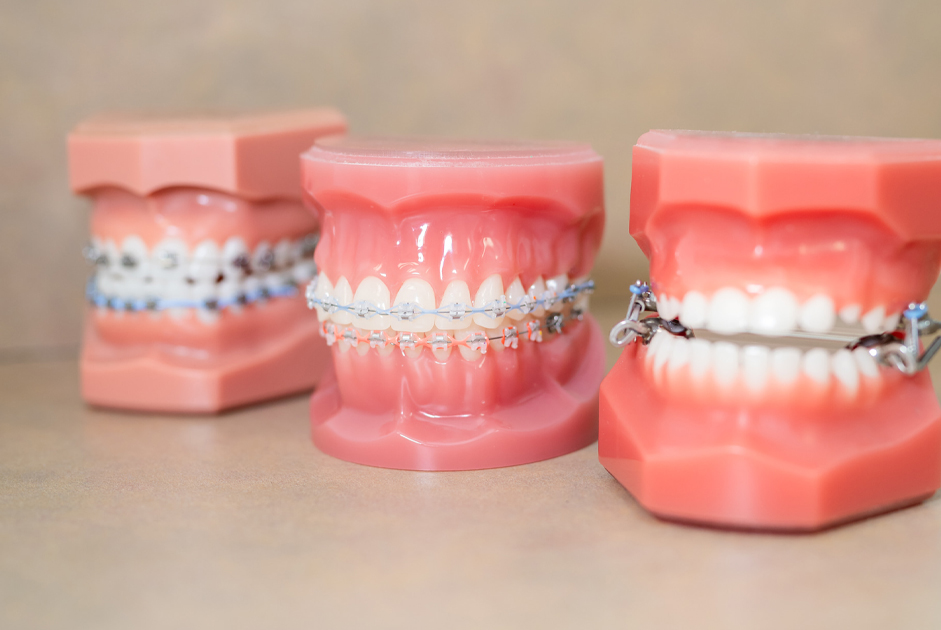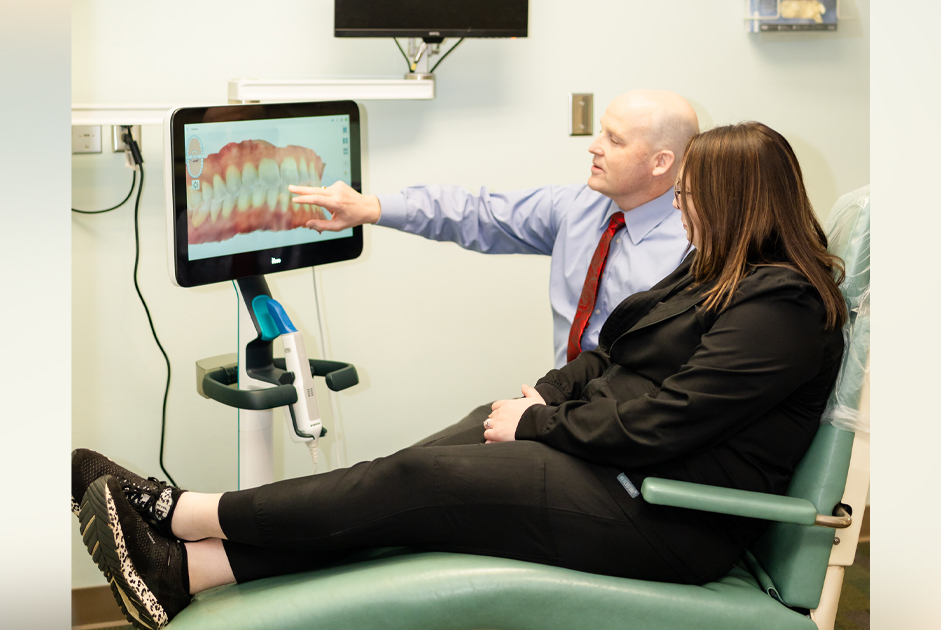photos by: MEGAN SMITH PHOTOGRAPHY
Continuing to build on its longtime mission of personalized care, University Dental Associates now offers eight practices in the Triad – a testament to their expertise and professionalism since opening in Winston-Salem in 1997.
With a comprehensive list of services available, orthodontics, endodontics and oral surgery often take center stage.
Orthodontics
As a specialist in orthodontics, Dr. Scott Tucker shares that The American Association of Orthodontists recommends children have their first orthodontic evaluation by age seven.

“At this stage, children typically have a mix of primary and permanent teeth, allowing orthodontists to detect potential issues early. Early evaluation can identify problems such as crowding, crossbites and functional shifts, enabling timely intervention that may reduce the need for more extensive treatment later on,” says Dr. Tucker. “The majority of patients do not require intervention at this age, but an early consult has proven very beneficial for those who need proper guidance in growth and development of the jaw and dentition.” He adds that waiting to perform all orthodontics during a single phase is the preferred route, but there are instances where early intervention is necessary.
Dr. Tucker also specializes in Invisalign. “The real key to success with Invisalign has to do with patient compliance,” he shares. “We need patients who can keep the Invisalign aligners in their mouth at least 22 hours per day. It sounds like a lot, but once it becomes a part of your routine, it often becomes second nature. Most patients tend to do very well.”
Other common treatments in orthodontics involve correcting overcrowded or spaced teeth, guiding jaw growth in children, aiding in correct tooth eruption patterns and managing the alignment of teeth and jaws.
Oral Surgery
Dr. Matthew Schiavone specializes in oral surgery at University Dental Associates and describes the most common reconstructive procedures as bone grafting at extraction sites or other areas of the jaw that are missing teeth – including performing sinus grafts. These procedures are done to facilitate implant placement in the future.
“Fortunately, 3D x-rays are now readily available, enabling us to quickly and accurately assess if a patient is a good candidate for an implant,” he explains. “Additionally, we can use computer software to plan and – 3D print – a surgical guide for use during the procedure. This decreases surgical time and allows for very precise implant placement.”
He notes some misconceptions about implants include that the crown placed on top of the implant will look or feel drastically different than the natural teeth. In general, and especially for replacement of a single missing tooth, the implant crown functions very similarly to a natural tooth. Also, people may believe that implant surgery and associated recovery periods are particularly painful. However, many patients report this procedure is easier than having a tooth extracted.
Endodontics
Endodontics treats problems that affect the inside of the tooth, often leading to a root canal.
“Yes, decay is the most common reason, but you may also need a root canal due to a cracked tooth or trauma,” shares Dr. Elizabeth Applebaum, who specializes in endodontics and root canal therapy. “A root canal is a non-surgical treatment to eliminate the diseased pulp. This inflamed or necrotic pulp is removed, and the root canal system is thoroughly cleaned and sealed. This therapy usually involves local anesthesia and is often completed in one visit. Success for this type of treatment occurs in about 90% of cases.”
Inside each tooth root is a channel that runs the length of the tooth and contains the pulp (nerves, blood vessels and soft tissue) which is often referred to as the “nerve” of the tooth. The pulp may be irreversibly damaged by bacteria associated with decay, very deep restorations, fractures, trauma or periodontal disease. It’s often necessary to remove the diseased pulp tissue in order to preserve a tooth which is known as endodontic therapy.
As a leading dental practice in North Carolina, the professionals at University Dental Associates understand the anxiety and inconvenience associated with any kind of treatment or surgery, and their skilled staff will be with you every step of the way. Most oral surgeries performed at their North Carolina locations are completed in less than one hour.
University Dental Associates offers hours Monday through Thursday 8:00 a.m. – 5:00 p.m. and Friday 7:00 a.m. – 5:00 p.m. and is available 24/7 for emergencies. To find a location or schedule an appointment online, visit udadentistry.com. Winston-Salem practices are located at 131 Miller Street, 336.837.2680, 1615 S. Hawthorne Road, 336.768.3454 and 2020 Village Link Drive, 336.923.4262. In Clemmons, find University Dental Associates at 6201 Town Center Drive, Suite 130, 336.778.9199, and 2311 Lewisville Clemmons Road, Suite 301, 336.631.4770.



















